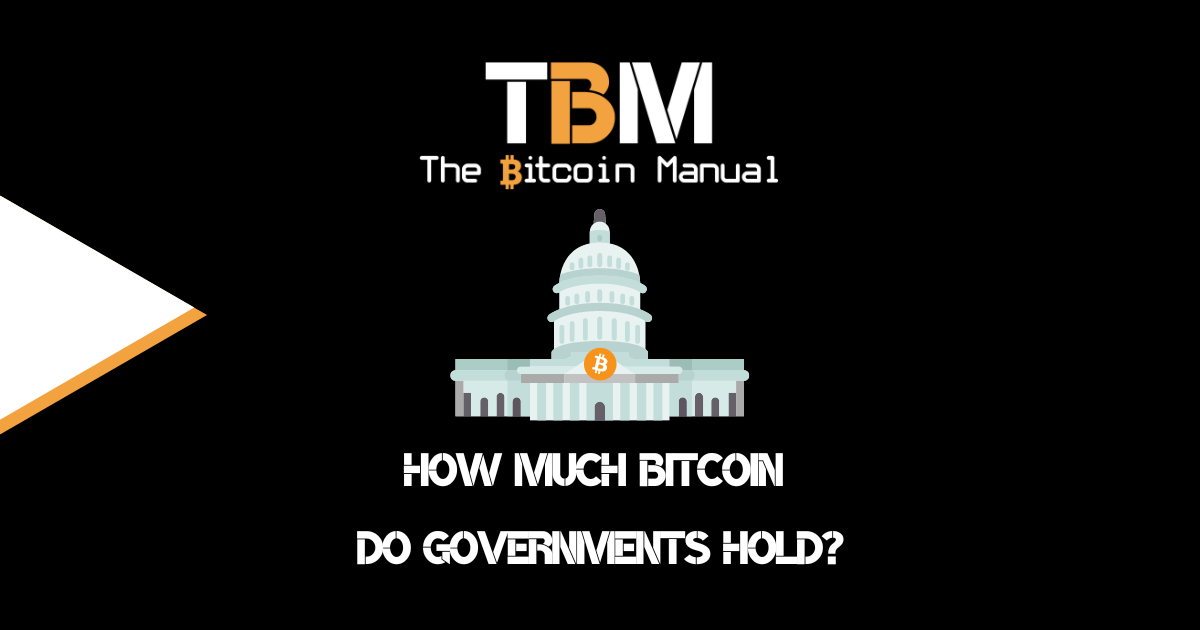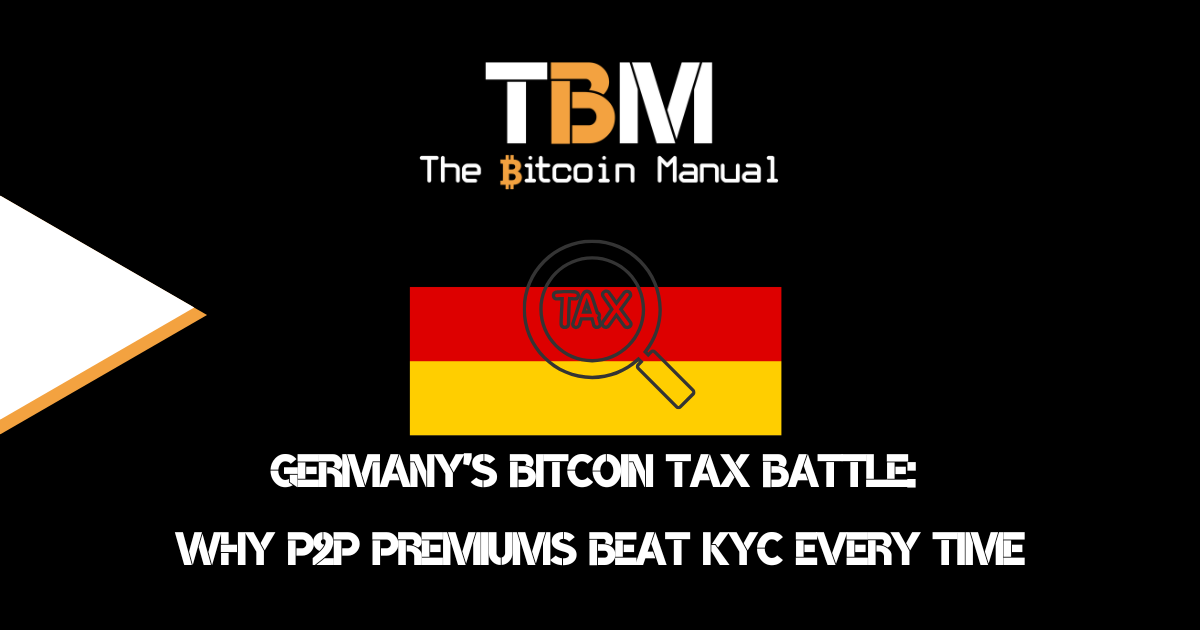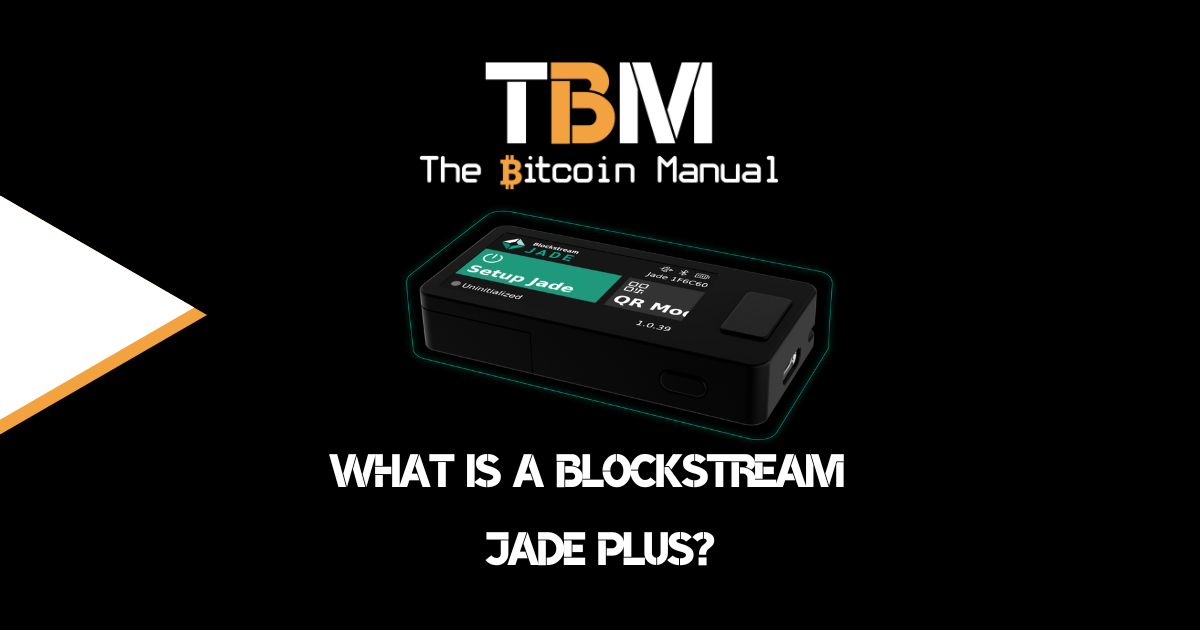Germany’s latest sale of 50,000 Bitcoin has revealed a number of large Bitcoin holders that very few of us pay attention to. Believe it or not, some governments around the world have quite a healthy Bitcoin balance sheet.
As of recent estimates, governments collectively own approximately ₿ 517 414, which accounts for about 2.4% of the total Bitcoin supply. Michael Saylor, there’s another Gigachad in town.
You would think that an entity with the ability to print its own money to fund itself would be in the most advantageous position to hold long-term. However, governments are still coming to grips with the impact of digitally scarce private money, and some are still thinking short-term and dumping their holdings for fiat money.
Governments are generally private about how much Bitcoin they possess and what they plan to do with it, so we’re not completely aware of how much every government owns. However, we can make some educated guesses based on their communication and overlay that information with known on-chain addresses and transaction dates.
| Country | Bitcoin Holdings (BTC) |
|---|---|
| United States | 213 246 |
| China | 190 000 |
| United Kingdom | 61 000 |
| Germany | 50 000 (Until July 2024) |
| Ukraine | 46 351 |
| El Salvador | 5800 |
| Bhutan | 621 |
| Venezeula | 240 |
| Finland | 90 |
| Georgia | 66 |
Apart from El Salvador, which has embraced Bitcoin as a local currency, governments that have taken an adversarial stance untoward digital assets face a bit of a conundrum as they hold these coins.
Financial incentives
Let’s say you’re a government, and you’re sitting on a pile of Bitcoin. As the coins appreciate in value, there is growing pressure to sell them, as those funds could be used to support different government initials and programs.
It’s hard to tell your constituents we don’t have the cash for X or Y when a publicly available kitty of coins could be liquidated.
But therein lies another issue: even if Bitcoin is worth a certain price, its volatility makes it hard for governments to liquidate as their sale, if it catches public attention, could drive down market prices.
Money laundering and crime
We hear this all the time when it comes to Bitcoin bash: Oh, the pseudo-anonymous nature of Bitcoin transactions makes them attractive to criminals, and governments struggle to regulate and track illicit activity.
Okay, but how did you seize these coins, then?
If you’re holding a fat bag of Bitcoin you acquired from criminal activity, it’s a reminder that the network isn’t some black hole where money can move in and out without consequences.
Validating Bitcoin as a store of value
Since Bitcoin isn’t controlled by any one entity, governments fear losing control over their monetary systems and the ability to implement economic policies.
Suppose you’re holding this dirty coin that is so bad, and yet it grows in size relative to your country’s other assets on its balance sheet. Do you need to enforce the idea that Bitcoin is a good store of value, as your Bitcoin holdings outpace the growth in other government-held assets?
Environmental concerns
Many governments worldwide have committed themselves to the Green movement, and Bitcoin doesn’t quite fit the bill yet. It’s still seen as an unnecessary ocean-boiling network with no real value provided for the resources it consumes.
Stacking Bitcoin and mining Bitcoin wasn’t part of the Paris Agreement, now, was it? It’s not a good look if you’re actively holding a bunch of these swimming pool-sized water-evaporating coins.
Governments’ Bitcoin acquisition methods
Since its inception in 2009, Bitcoin has gained global attention, garnering interest from individual investors, corporations, and governments.
While private entities and retail investors primarily drive the Bitcoin market, governments have increasingly found themselves involved in the Bitcoin ecosystem, both through legitimate means and, at times, through controversial acquisitions.
If we have a look at most of the government stockpiles of Bitcoin, they’ve come through seizures from cracking down on criminal activity, while some are starting to acquire theirs through participation and support for this monetary network
Governments have acquired Bitcoin through various means:
USA
Source: Seizures
The United States government has primarily seized Bitcoin through law enforcement, including crackdowns on illegal activities such as dark web marketplaces and money laundering schemes.
The U.S. holds 69,640 bitcoins, according to the research of a doctoral thesis by Sachin Jaitly, a general partner at investment advisor Morgan Creek Capital. That’s 94% of the bitcoin in global government coffers at the time.
While it has sold off some coins, it still has not released all of them.
The United States could have had an even larger stack than it has today but sold off some of its position in 11 subsequent auctions between 2014 – 2023. The U.S. Marshals Service auctioned off a total of 195 091 with more than 44,000 BTC seized from Silk Road operator Ross Ulbricht.
China:
Source: Seizures
China has also seized Bitcoin in similar law enforcement operations; according to local news outlet Sina Finance, the Chinese government confiscated 190,000 Bitcoin, 830,000 Ethereum, and 27.24 million EOS coins last year.
These massive crypto holdings were from three individuals: Chen Bo, Ding Zanqing, and Peng Yixuan, who perpetrated the PlusToken pyramid scheme. The scheme started in April 2018 and raised 310,000 Bitcoin, 9.17 million Ethereum, and more than 51 million EOS.
United Kingdom
Source: Seizures
The UK government seized 61,000 Bitcoin tied to criminal activities In the summer of 2021, when Jian Wen, an ex-takeaway worker, was arrested after allegedly acting as a “front person” for an investment scam operating in China.
According to The Telegraph, Wen has since been convicted of money laundering, and several assets were taken into custody, including the Bitcoin.
Germany
Source: Seizures
Germany seized Bitcoin as part of criminal investigations and asset forfeiture like other countries on this list. Their massive haul of 50,000 coins came from the shutdown of the website Movies 2K.
However, their balance has now gone to zero following the month-long sale of those coins via market maker Cumberland DRW and Flow Traders, crypto exchanges Coinbase, Bitstamp, Kraken and other wallet addresses.
According to reports by DL News, the sale netted them a return of $2.3 billion.
Ukraine
Sources: Donations and Seizures
Ukraine has acquired Bitcoin through both donations from cryptocurrency enthusiasts and seizures from several criminal operations.
According to CoinDesk, In 2022, Ukrainian prosecutors said they had seized a wealth of assets belonging to over-the-counter (OTC) brokers who illegally facilitated cryptocurrency purchases for users from Russia and Russia-occupied territories.
According to Protos, the National Anti-Corruption Bureau of Ukraine (NABU) has seized Bitcoin from Yuriy Shchigol, Ukraine’s former head of the State Special Communications Service.
Ukraine is a unique case where, in addition to seizures, the government has also received Bitcoin donations from citizens and international supporters.
The Ukrainian government secured $225 million in Bitcoin and other cryptocurrencies through donations.
Since the very beginning of the war @_AidForUkraine has started to help Ukrainian fighters to defend our land. On time reporting and clear communications: even more valuable things in war time. So, it feels like time to share the results of how your crypto donations were spent. pic.twitter.com/hvhwzUdeX2
— Mykhailo Fedorov (@FedorovMykhailo) April 18, 2022
Bhutan
Sources: Mining and Buying
The tiny nation of Bhutan made headlines when it was revealed that it leverages its surplus in hydro energy and engages in Bitcoin mining to generate coins for its balance sheet.
While the news broke in 2023, some reports claim that they’ve been in operation for five years now. In 2024, Bhutan plans to expand its Bitcoin mining capacity by 500%, enhancing its operations from 100 to 600 megawatts.
The Himalayan nation’s sovereign fund has been purchasing BTC since the price was around $5,000.
Bhutan spent 5% of its GDP to buy Bitcoin miners. https://t.co/WRBjdR4QTV pic.twitter.com/rG3SOcutwE
— FRANCIS – BULLBITCOIN.COM (@francispouliot_) April 30, 2023
El Salvador
Sources: Buying and Mining
The first country to adopt Bitcoin as legal tender has been actively buying Bitcoin to bolster its reserves. Only El Salvador is actively adopting Bitcoin, buying its first 200 Bitcoins and making the digital currency legal tender in 2021.
El Salvador has managed to accumulate over 5,700 Bitcoin through mining Bitcoin with Volcano Energy, selling passports, and buying one Bitcoin per day.
El Salvador’s president, Nayib Bukele, has even shared the nation’s Bitcoin address so anyone can check that they are meeting their target.
Venezuela
Sources: Seizure and Mining
Venezuela has both mined its Bitcoin and seized it from mining operations. Venezuela reportedly has a national mining pool and requests that all local miners point their hash rate to it, which nets them an income, while they’ve also begun to crack down and seize certain miners they claim either profit from illegal activities or are not supporting their state-sponsored mining operations acquire Bitcoin.
JUST IN: 🇻🇪 The Venezuelan National Power Ministry announced a special operation to disconnect all #Bitcoin mining farms from the grid.
— DΛVID 🟢 (@DavidShares) May 19, 2024
Authorities have seized over 11,000 bitcoin miners as the government seeks to reduce the power usage from high-power customers siphoning… pic.twitter.com/n21h2Nramm
Finland
Sources: Seizure
According to data from the customs office, Finland’s authorities acquired 2,000 BTC after confiscating it in raids in 2016. The funds came from the operation of an online dark market called Valhalla.
In 2022, Finnish Customs sold just under 1,890 BTC in a transaction that brought around 46.5 million euros into state coffers.
According to a report by Elementus, a blockchain analysis firm, the Finnish government holds around 90 BTC Bitcoin, primarily from 2016 forfeitures along with proceeds seized, which were slated to be donated to Ukraine.
Sweden’s brush with Bitcoin
2017 Swedish authorities bagged their first Sats when the Kronofogden seized 0.6 BTC and an equal amount of BCH only to turn around and sell them at an auction for a pittance in today’s value of 43,000 Swedish Krona. While details on the source of the funds are sparse, according to local reports, the funds were seized as part of a debt foreclosure.
“Assets are not just the car on the driveway or the money [in a] bank account. We live in a digital world, and now we are looking for assets in computers and hard drives as well as in telephones and web services. We’ve come across Bitcoin in cases before but this is the first time we have been able to move a digital asset to an account that we have control over”
Johannes Paulson, business developer at Kronofogden.
An Uno reverse card
In 2019, Authorities in Sweden seized 36 BTC from the drug dealer, worth just under $150,000 at the time of his prosecution two years ago, according to reports. Due to a legal misstep, the prosecutors set the value of the proceeds of their crime in Swedish Krona and not in Bitcoin.
After the men were sent to prison in May 2019, it fell to Sweden’s State Enforcement Authority to auction off the proceeds of the drug crime, a process that took over two years to carry out.
By the time the Swedish Enforcement Authority came to auction off the Bitcoin, its value had appreciated, and only three needed to be sold for the original value to be recouped in Swedish Krona terms.
Leaving the government and prosecutors with eggs on their faces, and they had to return 33 Bitcoins to the criminals in question.
“It is unfortunate that it has ended up this way. The lesson to be learned from this is to keep the value in Bitcoin. That the proceeds of crime are 36 Bitcoin, regardless of the value of the Bitcoin at the time”
Prosecutor Tove Kullberg
A miner inconvenience
Sweden is starting to build quite a history of Bitcoin-related own goals, with their recent U-turn from welcoming Bitcoin miners with subsidies to setting up massive tax hikes to try and force them out.
In another world, Swedish authorities have just held that 36.6 BTC, accepted some Bitcoin payments from miners, and built up quite a treasury, but that wouldn’t be as entertaining now, would it?
Oh, what will they do next? I, for one, can’t wait to see how the Swedes plan to fumble the bag in the future.
Dubious claims of Bitcoin treasuries
Not all government claims about Bitcoin acquisitions are confirmed with a press release and an on-chain address. In 2017, Bulgaria made headlines when several news outlets reported that the Bulgarian government had seized over 200,000 Bitcoin in a crackdown on organised crime. However, the South East European Law Enforcement Centre (SELEC) has stated that it has not taken ownership of any coins.
According to reports, the coins were acquired through an organisation that planted a virus that was used to hack into Bulgarian Customs computers. This allowed the perpetrators to skip paying fees when transporting goods into the country, and the proceeds were turned into Bitcoin.
This massive haul of 213,519 BTC would have put this country of just over 6 million people firmly at the top of the charts of Bitcoin holdings, above even China and only second to the U.S.
Bulgaria is no stranger to missing cryptocurrency; another high-profile case remains unresolved. It was in the form of a 2014 Ponzi scheme called OneCoin Ltd, based in Bulgaria, where U.S. prosecutors alleged that OneCoin brought in approximately $4 billion worldwide.
Since its collapse in late 2016/early 2017, Ruja Plamenova Ignatova, the face of the project, has remained at large, with a growing bounty of $4 million now on her head.
The tainted to untainted coin mixing services
One piece of Bitcoin labelling I find annoying, other than Ordinals, is the idea of “tainted” Bitcoin and how it gets “untainted” through government auctions; they perform some magical mixing service where the transfer of their UTXOs turns the coins pure of heart, and suddenly they are OFAC complaint.
All Bitcoin transactions are recorded on a public ledger (blockchain), but identities are hidden behind wallet addresses. This makes it difficult, if not impossible, to definitively trace the origin of a specific Bitcoin; if a government were to classify your coins as tainted, you wouldn’t be able to sell them on a regulated exchange, and they would likely be sized.
Tainted coins are always created when law enforcement can sometimes link certain Bitcoin addresses to criminal activity. This association can create a stigma around those coins, leading some exchanges or services to refuse to handle them.
This is where the idea of “tainted” Bitcoin arises.
If you can prove without a shadow of a doubt that certain coins were stolen, sure, I get the tainting, but when you start to paint all coins that have cone through mixed coins with the tainted brush, the assumptions start to veer off the rails.
Where does the tainted classification stop?
Apparently, nowhere can they extend it as far as possible in order to acquire the funds, and only governments can pardon coins and recycle them back into the system.
What do governments do with Bitcoin?
Once governments acquire Bitcoin, their approach to handling it varies:
- Investment and Reserve Asset: Some governments, like El Salvador, have adopted Bitcoin as legal tender and hold it as part of their national reserves.
- Seizure Proceeds: Bitcoin seized from criminal activities often goes through legal proceedings and may be auctioned off, sold, or retained as an asset by the government.
- Mining Operations: Countries mining in Bitcoin may use the proceeds to bolster national coffers or support their economies.
- Regulatory Control: Governments may also use their holdings to influence or regulate the Bitcoin market, imposing regulations or restrictions as needed.
Government involvement in Bitcoin reflects a complex intersection of economic strategy, law enforcement, and technological adaptation. As Bitcoin grows and becomes a more significant part of the global economy, governments face challenges in regulating, utilising, and accounting for their holdings.
Whether as an investment, a regulatory tool, or a means of combating illicit activities, government participation in the cryptocurrency market underscores its growing significance in the global financial landscape. As governments navigate this new terrain, the transparency and accountability of their Bitcoin holdings will likely remain a subject of scrutiny and debate among policymakers, investors, and the public alike.
Do your own research.
If you want to learn more about government Bitcoin stashes, use this article as a starting point. Don’t trust what we say as the final word. Take the time to research other sources, and you can start by checking out the resources below.
- https://thedalesreport.com/crypto-nfts/how-governments-bitcoin-holdings-influence-the-market/
- https://www.livemint.com/news/world/why-the-us-government-has-5-billion-in-bitcoin-11697460593433.html
- https://coingape.com/bitcoin-beyond-germany-190k-btc-chinese-seizure-is-also-a-threat/




